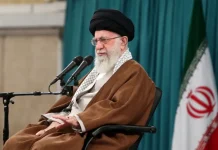The price of crude oil slid by almost three per cent on Monday, March 14, after Iran dashed hopes of a coordinated production freeze in the nearest future.
This fall is coming despite the pledge by Saudi Arabia to cooperate with other members of the Organization of Petroleum Exporting Countries, OPEC, to stabilize the oil market.
Saudi Arabia and several fellow OPEC members had agreed with non-OPEC Russia to freeze output at January levels in an attempt to prop up prices.
A recent Saudi cabinet statement also disclosed that the kingdom was working towards stability in the oil market and would remain in contact with all main producers in an attempt to limit volatility.
The renewed cooperation between OPEC and non-OPEC members had led to a rise in the price of oil above $40 per barrel but that was still a fraction of the $115 per barrel of 20 months ago.
But following Iran’s revelation on Sunday that it would only join the discussions for cooperation after its output has hit 4 million barrels per day (mbpd), the price of oil fell by about three per cent yesterday.
Iran’s oil exports are due to reach 2mbpd in the Iranian month that ends on March 19, up from 1.75 million in December 2015, according to Reuters.
Iran’s position has returned bearish sentiment over a supply glut that has sent prices crashing in the past 20 months.
Global benchmark Brent crude, which hit a 12-year low of $27.10 per barrel in January and had risen above $40 this month, fell back monday to below $40 a barrel, trading at $39.27, while US crude was down $1.09 trading at $37.41 a barrel.
Iran’s Oil Minister, Bijan Zanganeh was quoted as saying on Sunday that it would join discussions after its output reached 4mbpd.
According to the Shana news agency, Zanganeh said Iran and Russia could cooperate on the swap, which would see Russia send oil and gas to northern Iran in return for Iranian supply to Russian customers in the Gulf.
Saudi Arabia appeared to have stuck to a preliminary deal reached with some other producers to freeze output, as its crude production held steady in February at 10.22 million barrels per day (bpd), an industry source told Reuters.
OPEC members and non-OPEC producers are likely to meet again in mid-April in Doha to discuss freezing output, OPEC sources told Reuters.
With Iran’s position, the scheduled March 20 meeting in Russia, which was part of an earlier plan, now looks unlikely.










